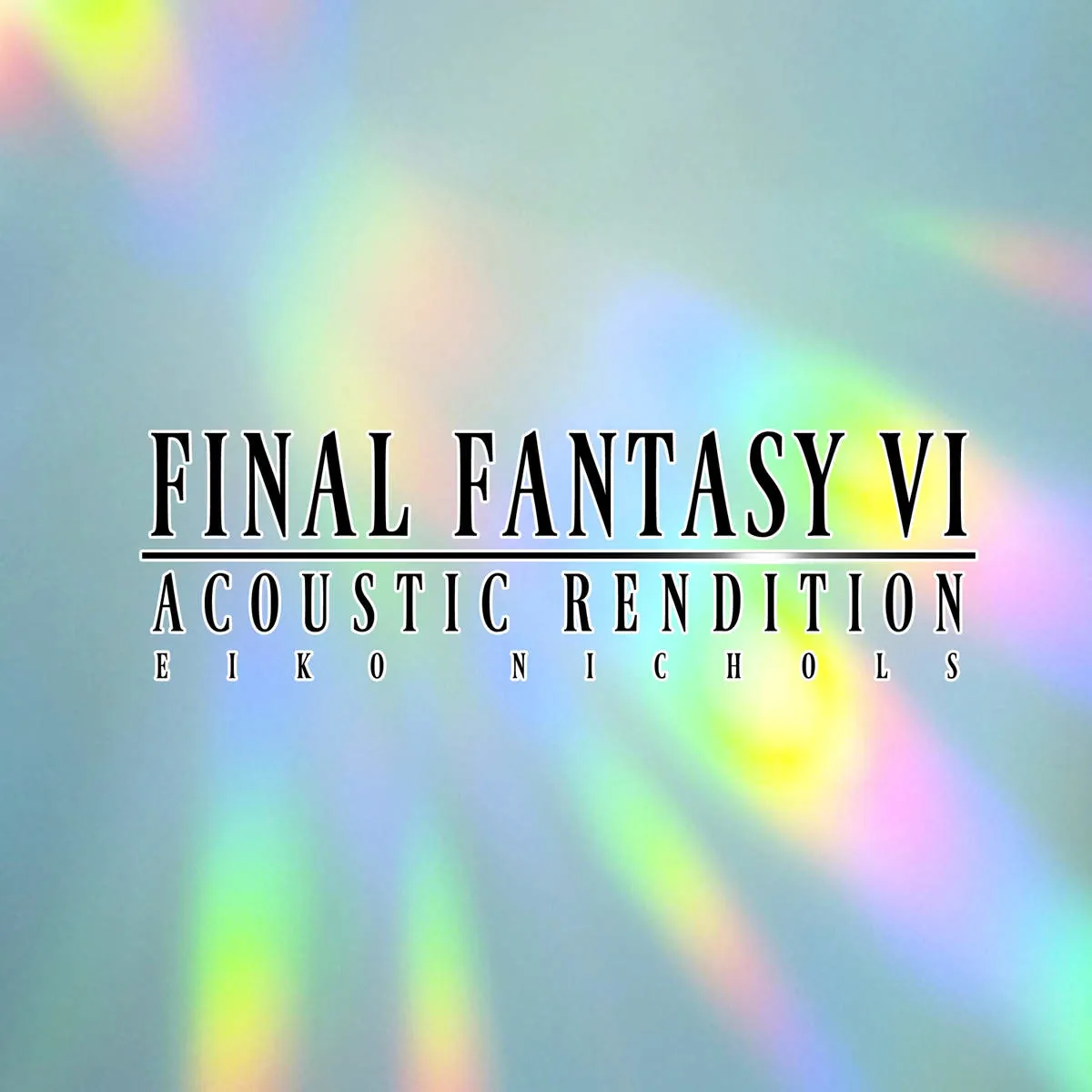The soundtrack to Final Fantasy VI has always held a special place in my heart. While this certainly wasn’t the first time I paused a game just to listen to the music, it was the first time I wanted to listen to that music even when I wasn’t playing. It was exciting, atmospheric, dramatic, and genuinely emotional. It broadened my vision of what a video game soundtrack could be. Even after years of familiarity have dulled its luster, I still come back to it sometimes and wonder at how well its style and themes have stood the test of time. Of course, I’m certainly not the only person who has a special fondness for this soundtrack. Generally speaking, the Final Fantasy fan community still considers VI one of the best games with one of the best soundtracks in the series. After listening to Final Fantasy VI: Acoustic Rendition, I think it’s safe to say that composer/multi-instrumentalist Eiko Nichols agrees. This album is the product of a remarkably fastidious process, as Nichols transcribed just over twenty of the original tracks into their component parts and recorded each part herself using real instruments. The end result breaks free from the Super NES’s technical limitations while remaining strikingly faithful to the original material.
“The Decisive Battle” is easily one of my favorite boss themes of all time, and I was eager to see how Nichols would handle an acoustic version of this iconic tune, so I naturally played that track first. I was immediately greeted, to my surprise, by a keyboard, organ, and electric guitar. This initial shock brings me to the most important caveat regarding this album. The “acoustic” moniker might lead most listeners to expect no electric instruments at all on this album, and that is absolutely not the case. There is a lot of electric keyboard here, as well as some samples and even a little MIDI here and there to fatten up the sound. This isn’t a complaint, mind you, but don’t go into this album expecting Final Fantasy VI Unplugged.
Nichols has clearly put painstaking effort into analyzing the original compositions and recreating them with real instruments, and that effort shows in each track’s excellently balanced ensemble. It seems like balance is often the first thing to go when we get new arrangements of older soundtracks, probably because our natural tendency is to overemphasize the most iconic elements of the original. Happily, that is not the case here. Uematsu’s gorgeous melodies are front and center, but Nichols leaves plenty of space in the mix for his countermelodies as well. Her stunning rendition of “Celes’s Theme” opens with a lovely counterpoint between harp and flute, launches into the main melody on xylophone, and then wraps that melody up in a thick blanket of chamber orchestral accompaniment. It’s warm and lovely, and it absolutely does that iconic theme justice.
She also demonstrates a strong sense of dynamic contrast, particularly in “Kefka,” where she nails the transition between the track’s innocuous, almost comedic first half and its broadly villainous second half. I also have to give Nichols credit for her instrumental choices. They are tasteful and spot-on to the original soundtrack, and that is an accomplishment considering how ambiguous some of those original samples could be.
Next to her arrangement philosophy, the most important thing Nichols brings to this album is her performance. Her style is understated but effective, relying on subtle fluctuations in tempo and dynamic emphasis to give each track a sense of depth and forward momentum. Admittedly, these expressive touches are occasionally a little too subtle. “Terra’s Theme” and “Locke’s Theme” in particular feel rote and unusually static, but these might also be side effects of the form in which Nichols has chosen to work. By playing and recording each part individually, and not relying on symphonic samples, she creates a sound-space that is intimate but confined. The music always sounds like it’s playing in a studio, not a concert hall. Some of the more symphonic tracks, like Terra’s theme, Locke’s theme, and Edgar’s theme, strain against the limitations of this recording style. Epic tracks from the original like “Omen,” “Battle,” “Catastrophe,” “Dancing Mad,” and “Mt. Kolts” are conspicuously absent. Instead, the album focuses almost exclusively on quieter moments and character themes. I think this was a wise move on Nichols’ part because it plays to the strengths of the format.
Overall, this album is definitely worth a listen if you are a Final Fantasy VI fan, but if you are hoping for some dramatic reinterpretations, then it’s probably not for you. The top priority throughout is fidelity to the original score; the tracks don’t feel like new arrangements so much as refurbished version of the originals. That may sound like faint praise, but it’s exactly what I wanted. Nichols doesn’t try to spin these classic pieces in a new style. This isn’t Final Fantasy VI Remix or Final Fantasy VI Metal or even Final Fantasy VI Unplugged, despite what you may expect from the title. The selection of tracks on this album are Final Fantasy VI just as you remember them, but reinvigorated with a little more soul and a new coat of paint.





